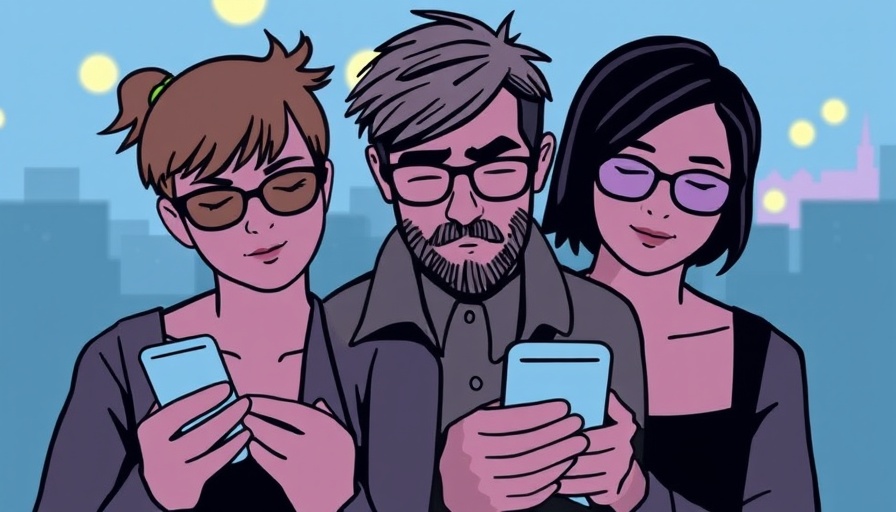
Understanding the Connection Between ChatGPT and Loneliness
Recent research reveals a troubling trend among users of ChatGPT: as individuals increasingly rely on AI for emotional connections, they may find themselves experiencing heightened levels of loneliness. The findings from studies conducted by OpenAI and the MIT Media Lab suggest that significant engagement with chatbot technologies, particularly through emotionally expressive conversations, can contribute to feelings of isolation among users.
The Emotional Dependency Dilemma
Interestingly, while only a small percentage of the total ChatGPT user population engages deeply on an emotional level, those who do tend to be among the most frequent users. This group relies heavily on the chatbot for social and emotional support, potentially due to a lack of adequate offline interpersonal connections. The researchers have raised questions about whether it's the loneliness that drives individuals to form these relationships with AI or if the AI's presence exacerbates pre-existing feelings of isolation.
Exploring Gender Dynamics in AI Interactions
The studies also examined gender-related patterns in emotional bonding with chatbots. They found that female participants exhibited a significant decline in socializing as their dependence on the chatbot grew, particularly when engaging with ChatGPT's voice mode in a gender different from their own. This aspect of the research raises intriguing considerations about how the type of interaction (text-based versus voice) might influence human emotions and social behavior.
Social Implications of AI Technology
As the use of AI chatbots soars—reportedly impacting over 400 million individuals weekly—the broader implications for social engagement are increasingly important. This surge in AI interaction poses fundamental questions about how evolving technologies are affecting human relationships and feelings of companionship. While advances in AI aim to provide support, the paradox lies in their potential to foster loneliness rather than alleviate it.
What the Future Holds: Predictions on AI and Connection
Looking ahead, researchers predict that the ongoing development of emotionally intelligent chatbots could either foster meaningful connections or exacerbate feelings of loneliness. The advancement of such AI tools necessitates careful consideration of their emotional impact on users, especially as they become more integrated into daily life. This suggests a need for developers and users alike to be mindful of the balance between virtual interactions and genuine human connections.
Finding Real Solutions: Balancing AI with Human Interaction
The essential question remains: how can individuals benefit from AI tools like ChatGPT while maintaining healthy social lives? Suggestions range from setting limits on chatbot interactions to prioritizing offline relationships and social activities. Engaging with AI should enhance—rather than replace—real-life connections.
Conclusion: A Call to Reflect on Our Tech Usage
As we integrate AI more deeply into our lives, it becomes critical to reflect on the ramifications of such reliance. Awareness of the potential for increased loneliness can motivate users to seek a healthier balance between virtual and real-world connections. It’s vital that as we innovate, we also consider the emotional health of users navigating this evolving landscape.
 Add Row
Add Row  Add
Add 




 Add Row
Add Row  Add
Add 

Write A Comment